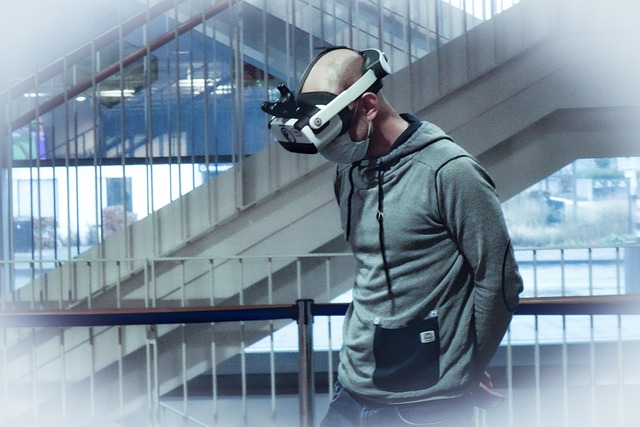Immersive Teaching: Exploring VR Technology for Educators
In the ever-evolving landscape of education, the integration of technology has transformed traditional teaching methods into interactive experiences. Among these advancements, teacher VR technology stands out as a groundbreaking approach that immerses students in rich, engaging environments. Imagine a classroom where students can explore ancient civilizations, dive deep into the ocean, or even travel beyond the stars, all from the comfort of their desk. This isn’t science fiction; it’s the power of virtual reality (VR) in education.
Virtual reality opens doors to immersive learning experiences that were previously unimaginable. With a VR headset, educators can transport students to historical events or foreign lands, enabling them to experience lessons in a way that captures their imagination. For instance, a history teacher can guide students through a VR simulation of the Roman Empire, where they can interact with digital avatars of historical figures, witness events unfold, and gain a deeper understanding of the subject matter. This engagement fosters not only retention of information but also sparks curiosity and enthusiasm for learning.
Alongside VR, augmented reality (AR) complements this immersive approach, allowing teachers to enhance their lessons with interactive elements that blend seamlessly with the real world. Picture this: students examining a 3D model of the solar system that they can manipulate with their hands, viewing planets in relation to one another, and understanding concepts like gravity and orbits better than ever before. AR apps can act as a bridge between the physical and digital worlds, enhancing learning experiences while catering to various learning styles.
As educators venture into these uncharted territories, the metaverse represents the next frontier for immersive education. This digital universe enables collaborative learning experiences, where students can interact with peers from around the globe within virtual classrooms. In the metaverse, geographical barriers disappear, allowing a diverse tapestry of thoughts, cultures, and perspectives to enrich discussions. Teachers can facilitate group projects where students collaborate on creative tasks in real-time, fostering teamwork and communication skills crucial for the future.
However, embracing teacher VR technology and other AR tools requires a shift in mindset among educators. It’s essential for teachers to receive proper training and support to integrate these technologies effectively into their curricula. Professional development programs focused on immersive tech can empower educators by providing them with the tools and confidence to experiment with these innovative teaching methods. Collaboration with tech experts and fellow educators can create a stimulating environment where ideas flourish, ultimately enhancing the learning experience for students.
In addition to its impact on engagement and collaboration, VR and AR technologies can also cater to students with varying needs. For instance, students who struggle with traditional learning methods may find solace in the hands-on, experiential nature of immersive education. The technology allows educators to create personalized learning environments where each student can progress at their own pace, building confidence along their educational journey.
As we embark on this exciting transition toward immersive teaching, it is vital to keep an open dialogue about the ethical implications that may arise with the incorporation of these technologies. Educators must navigate concerns surrounding data privacy, access to technology, and the digital divide that can affect students’ equitable learning opportunities. Ensuring that all students have access to high-quality VR and AR experiences is crucial to creating an inclusive environment where everyone can benefit from these advancements.
In summary, teacher VR technology and augmented reality are reshaping the educational landscape, allowing for more engaging, interactive, and personalized learning experiences. As the metaverse continues to develop, it promises to revolutionize how we approach education, breaking down barriers and fostering a global community of learners. By embracing these immersive technologies, educators can inspire the next generation, sparking a love for learning that lasts a lifetime.



